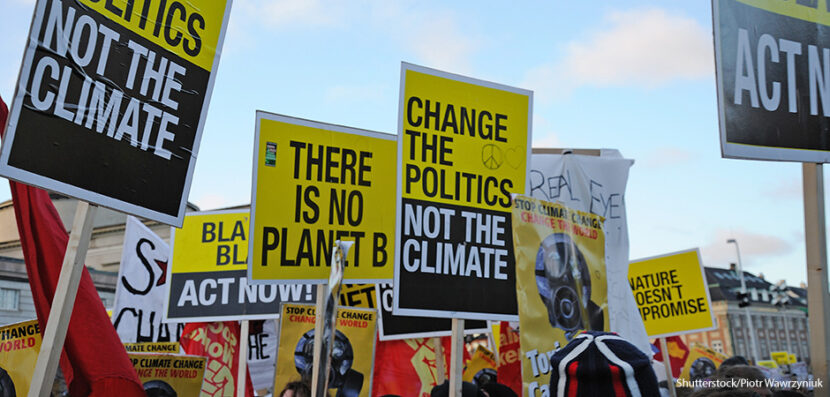- Current Events New Alabama Congressional District Selects Candidates
- Current Events Nebraska Rejects Winner-Take-All Proposal
- Citizenship Voting Under Age 18
- Citizenship Citizenship in Action
- Democratic Party Biden’s and Trump’s Recent Primary Results
- Elections Trump and Biden Win South Carolina and Michigan Primaries

Students Strike for Change
On March 15, tens of thousands of students across the globe walked out on their classes to stage demonstrations demanding governmental action on climate change. Here, Election Central takes a look at how this movement began, and what it might mean for the future health of our world.
How It Started
Last December, sixteen-year-old Greta Thunberg gave a powerful speech at the United Nations about climate summit. She demanded that delegates take a stronger stand against climate change. Her words inspired young people all over the globe to speak out to raise awareness about the effects of climate change and to demand solutions from their governmental leaders. Last week, Thunberg won the Nobel Peace Prize for her leadership.
Related Links
To refamiliarize yourself with some of the past stories mentioned in this post, click the links below. There is also a link to source material for new information mentioned in this post.
- Learn more about the U.S. Youth Climate Strike by visiting the organization’s Web site.
- Reread the Election Central story about the March for Our Lives movement, which grew after the Parkland shooting incident.
- Read more about the Intergovernmental Panel on Climate Change.
- Remind yourself about the Green New Deal by reading this Election Central post on the subject.
So, What Happened?
On March 15, over two thousand coordinated events took place across 123 countries. Here in the United States, the event was called the “U.S. Youth Climate Strike,” with students from nearly every state participating. Young climate activists wanted to follow in the footsteps of the Parkland gun violence survivors, who started a national conversation about gun violence following the February 14, 2018 mass shooting at Stoneman Douglas high school. And so, young environmental activists walked out of school and took to the streets to make their voices heard.
In Stockholm, Sweden, Thurberg herself spoke in front of a crowd of more than ten thousand people. Here in the U.S., in New York City, sixteen students were arrested for staging a “die-in” in front of the American Museum of Natural History. In Washington, D.C., students observed eleven minutes of silence, one for each year remaining until the effects of climate change become irreversible (according to a recent report from the United Nations Intergovernmental Panel on Climate Change).
What Were the Students Demanding?
Globally, the protesters were calling for an overall reduction in greenhouse gas emissions. Here in the U.S., student activists demanded the following:
- governmental support for a Green New Deal;
- an end to fossil fuel infrastructure projects;
- declaration of climate change as a national emergency;
- mandatory education on climate change in K-8 school curriculum;
- a clean water supply;
- protection and preservation of public lands and wildlife; and
- for all governmental decisions to be based on scientific research.
What Was the Response?
Many mayors across the nation came out in support of what the students were doing. However, several other leaders were critical of the students’ actions. Some felt that the proposed terms (especially the Green New Deal) were too ambitious, while others had a problem with the timing of the event. For example, British Prime Minister Teresa May said that the demonstrations were a waste of valuable lesson time. Student organizers, however, noted that the whole point of skipping school to demonstrate was to show state and national leaders how serious youth are about dealing with the climate change crisis. They argued that holding the protests in the evening or on a weekend would not have had such a powerful impact.
Another global student protest is planned for May of this year.


